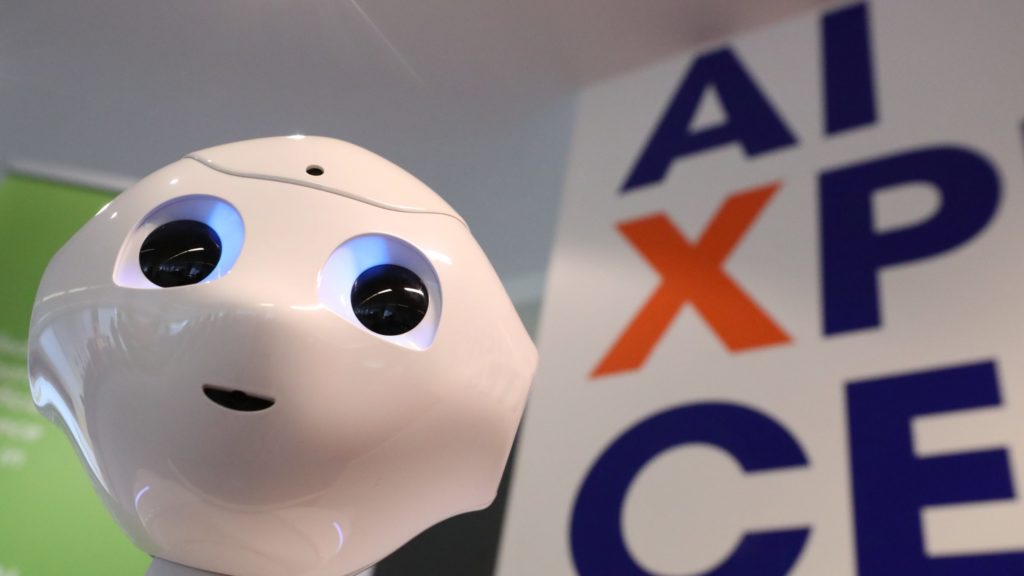What potential role do artificial intelligence programs have for the Catholic Church's new evangelization? A great deal according to human -- and AI -- experts.
When asked by OSV News how ChatGPT, a free online AI program that can "talk" to users, can be "used in service of the mission of the Catholic Church, including education and evangelization," the highly-advanced chatbot answered in the affirmative -- and gave a caveat.
"ChatGPT can assist in the mission of the Catholic Church by providing information and answering questions related to Catholic teachings, beliefs and practices, which can aid in education and evangelization efforts," it stated. "Additionally, ChatGPT can assist with language translation and facilitate communication between individuals who may have language barriers."
But at the same time, ChatGPT qualified its answer.
"However, it's important to note that ChatGPT is just a tool and should not be relied upon as a sole source of information or guidance," it added. "The teachings and guidance of the Catholic Church should ultimately come from qualified human experts, such as priests and other religious leaders."
In other words, bishops, clergy and lay catechists are still as indispensable to the church with AI tools just as they were when the church started putting the Gospels to pen and paper.
ChatGPT (Generative Pre-trained Transformer) is an "artificial conversation entity" -- a chatbot -- that is technically a form of "natural language processing" technology. It uses machine learning algorithms and vast amounts of data to generate human-like responses to requests. It can answer questions, write essays, compose emails, and even produce poetry.
Developed by OpenAI, a for-profit research foundation injected with billions of dollars in Microsoft funding, it has received a frenzy of attention since its Nov. 30, 2022 launch. According to a Feb. 2 Reuters report, ChatGPT "is estimated to have reached 100 million monthly active users in January … making it the fastest-growing consumer application in history."
When informed by OSV News that ChatGPT deferred to "human experts, such as priests," Jesuit Father James Keenan, director of the Jesuit Institute at Boston College, joked that "it would be nice if everybody paid attention to that adage!"
Nonetheless, the priest told OSV News, "The more that the church engages AI, the better."
"Not capitulating to it," he said, "but actually engaging the topic." Father Keenan participated in the Vatican's October 2021 symposium, "The Challenge of Artificial Intelligence for Human Society and the Idea of the Human Person."
"I don't see why we should be saying AI is bad for you," Father Keenan commented. Obsessive personalities may find it addicting -- as with social media or online gaming -- but "it's just a new resource."
However, human judgment, Father Keenan said, should not be yielded to AI.
"The question that always has to be asked is, 'where is the human in all this?'" he said.
The danger of substituting AI for face-to-face evangelization, Father Keenan cautioned, is "that we atrophy in doing the work of evangelization and let the machines do it."
Dan Kuebler, project co-lead of The Purposeful Universe and dean of the School of Natural and Applied Sciences at the Franciscan University of Steubenville, Ohio, sees catechetical possibilities in AI tools like ChatGPT.
"Think about someone that doesn't have access to the catechism, or just wants to know what the church's teaching is on something -- that's a question that could be answered by one of these," he said.
The results, however, are only as good as the input: the enduring computer science maxim of GIGO, "garbage in; garbage out." Humans ultimately supervise the algorithms and data ChatGPT relies upon.
"It's only as good as the data that you put in -- if you put in bad data, you're going to get bad answers to some of these questions," Kuebler explained. "If you put in biased data, you're going to get biased answers."
"What would be wonderful," Kuebler suggested, "is to build a ChatGPT-type engagement for Catholics, where you can just ask questions, and it would give the answers that would be consistent with Catholic teaching."
ChatGPT also has sparked other tech companies to accelerate their own AI tools. Microsoft has begun beta-testing an AI-enhanced version of its Bing search engine. Google made a splash announcing its AI chatbot "Bard" on Feb. 6, but the ChatGPT alternative made a factual error on the James Webb Telescope during its reveal, a public mistake that wiped out $100 billion in Alphabet's (Google's parent company) value when markets opened the next day.
"They're already predicting that ChatGPT is going to replace Google," Father Ian Van Heusen, campus minister at East Carolina University's Newman Center in Greenville, North Carolina, and leader of the MetaCatholic project. "So there's a good chance that instead of Googling something in six months or a year, you might be using ChatGPT."
"We're going to be doing some great stuff with faith and technology in the near future," Father Van Heusen said. MetaCatholic develops AI-based Catholic content, such as its VR (virtual reality) rosary -- available on the YouTube 360 app -- that immerses viewers in a 3D, 360-degree "you are there" environment using an Oculus headset and compatible VR devices.
For those without a VR headset, the sorrowful mysteries also can be seen on Father Van Heusen's YouTube channel.
"In a year or two, it won't be about if you're going to use AI," Father Van Heusen explained. "It will be about how you use AI."
For those who are anxious at the steady march of technology, he has a reminder: "We believe in providence -- God's in charge. From all eternity, God knew that he would give humanity 'artificial intelligence.'"
Rather than worrying by focusing on AI's potential problems, Father Van Heusen said, "We should be asking ourselves, 'What is God doing right now? Where is God's will in this?'"

